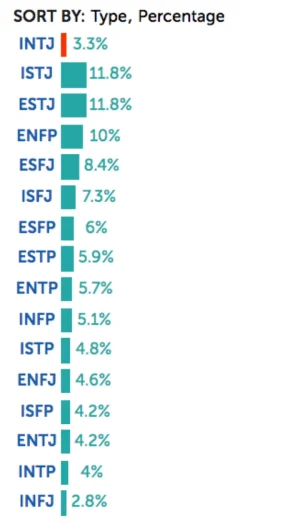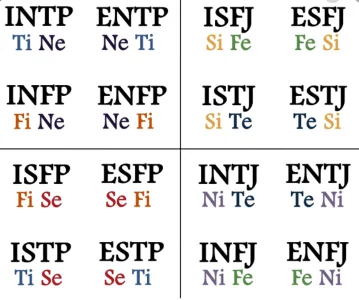D
Deleted member 16771
Lol. You sure? Doesn't sound like me.you've already asked me what star sign I am
Lol. You sure? Doesn't sound like me.you've already asked me what star sign I am
I could be argued out of this position, of course.


First of all, I'm going to side with @slant here in regards to cbt. CBT is an official medical therapy method, used in psychological practice. It is exactly as slant describes it, which is the recognition of one's emotions, thoughts and behaviour in a situation. All of these are intertwined with themselves and are linked to past experience, which results in us being more or less sensible to a certain situation , thought, emotion, behaviour or a mix. The next step is to understand each part (this includes one's emotions in the situation) and how to react on it, it is a useful ability in any situation and interaction. Subconsciously we react very differently on the same situation depending on how we are internally wired.
https://www.nhs.uk/conditions/cognitive-behavioural-therapy-cbt/
Let me give an example, straight from 9gag: https://9gag.com/gag/aV0RrXM - called "Flight from Hell". Just watch the video and feel the situation (sorry to everyone that does have stronger emotions linked to this situation in advance).
You will experience either positive or negative emotions based on how you are experiencing the situation. From the perspective of the passenger, it could be irritability, anger, annoyance. From the perspective of the parent it could be embarrassment, anxiety, sadness. From the perspective of the child it could be pain, confusion, anger, anxiety, ... .
Now watch the same video again but by reading the text in the upper left corner.
Now read the comments. You'll notice a strong tendency of people acting very negatively on the video.
Now, how do you feel in this situation?
Notice what I have written in the above in the experiment (and this is a bit of an experiment as well), did you notice I only wrote negative emotions? Did that perhaps already put you in a more negative emotional state on the situation?
Because there could be positive emotions affixed as well to it, compassion, (parental/empathic) warmth, ... . It all depends on how we perceive the situation from our point of view. And this includes both the internal self as well as external factors (which might have influenced your emotional state on the situation, it sure did in the 9gag comment section).
For the internal self (which CBT focuses on, in Dutch this is called the G-Schema, no idea what the english term is):
- Situation: How do we view this situation? From which perspective? Passenger? Parent? Child?
- Emotions: How do we feel in this situation? Do we have emotional experience as a parent? Or as a child in such situation? Do we experience certain positive or negative emotions more or less in this situation based on our past?
- Thoughts: Which thoughts are going through our mind when we watch this situation?
- Behaviour: How do we react in such a situation? How do other people react in this situation?
All of these are linked with each-other and continuously looping until you break the chain and react on it. That would be behaviour.
For the external factors: A lot of external factors subconsciously already put you in a certain emotional state (as I tried to do with the experiment above). The psychological term is called priming (a very powerful and in my opinion dangerous psychological tool), and believe me when I say that in today's society a lot of instances are using it (facebook being one of the wonderful examples by being selective in which information is shown in your feed): https://en.wikipedia.org/wiki/Priming_(psychology)
A must read I recommend to everyone is this book: https://www.amazon.com/dp/1501101218/?tag=infjs-20. It describes the general terms that is our un/subconscious behaviour (and how much we are bound to it), that includes the things I said above as well.
Second of all, this is a discussion about the attitude within the forum, however and I do see others (@Deleted member 16771 for example, am I correct, didn't scroll back through the whole thread?) mentioning it, this also extends to the real world interaction as well.
Going to pull in the official MBTI stats here and do a summation.
View attachment 62921 View attachment 62922
Total amount of thinking types: 51.5%
Total amount of feeler types: 48.4%
Total amount of Fe primary/secondary types: 23.1%
Total amount of Fi primary/secondary types: 25.3 %
Total amount of xNFJ's: 7.4%
Total amount of INFJ's: 2.8%
Total amount of magical type that's missing: 0.1% (I assume that's an error margin)
So, based on this we have a distribution of 50-50 in regards to thinkers and feelers. Around 1/4th of people tuned in with Fe and Fi. Less than a 10th of the world population equipped with Intuitive Fe and around 1/40th of the population that are INFJ's. Roughly.
A lot of people are not naturally or at least in certain extent not properly equipped with the tools for extraverted feeling (Fe). Even irrespective of MBTI itself and just turning over to emotional intelligence, there is a wide variation in today's society (honestly going worse) in regards to the amount of EQ each individual has (not even taking personality disorders like NPD / Sociopathy / Psychopathy in mind, which will probably take a chunk of the population as well).
This means that we daily will get into an interaction with people that perceive handling emotions differently than how INFJ's do, irrespective of the question if these people are even conscious of their actions. Not saying that these actions shouldn't be reprimanded when they are acting negatively. Just saying that there a lot of people are not aware of the emotional impact of their actions.
Finally, and ironically, what I do see here is a up/down stream of emotions in various directions in this thread. One reply fuelling the other. This occurs all the time in this forum. And that is normal human behaviour. But for this forum we do have some insight on who the general populace is, which is INFJ. So the general terms on behaviour is to act as if you are in within a group with a majority of INFJ's, stating this as a proposal for general consensus, not based on my own behaviour.
PS: I already got negatively primed because the goddamn laptop here took 15 minutes to load all the 20 tabs I was opening...damn you Apple with your shitty updates forcing me to buy a new macbook. Oh, consumer relief, how precious you are to me!
Shhh! Don't hint that there's a type more magical and special than INFJ, you'll kill the site.Total amount of magical type that's missing: 0.1% (I assume that's an error margin)
Yes, once upon a time on my profile ;{Lol. You sure? Doesn't sound like me.
Are you trying to control other people's behavior or not?
People use their offenses for social positioning all the time. The opposite is also true though, being kind and good natured is also beneficial.
There are many ways to skin a cat.
Call out culture
I think that's what it all comes down to. How much do you depend on your external environment to give you your internal peace? How much do you depend on other people's behavior and responses to define who you are? The more permeable your boundaries and sense of self, the more prone you are to emotional contagion, so of course you're going to want to control your environment.
And as you can imagine, a lot of people go on a power trip this way. Those who police opinions and those who rabble rouse are the opposite sides of the same coin. It's an ego rush to incite a response in others and then blame them for it, just as it is an ego-rush to put people in their place and over correct their behavior.
The thing is, these days, you see more and more of the power-tripping in the 'correcting behavior' category.
This.
Wherever you go, cancel culture is the rampant and self-perpetuating zeitgeist in the West. And the social infrastructure of the internet has largely something to do with it. Whereas before, you had to learn the social skills to get on in a company of mixed perspectives, online, it's very easy to get involved in echo chambers that give select issues far more weight and validation than they would receive anywhere else. And no matter what the issue, the psychological mechanism arising from these kinds of groupings is the same: it prioritizes personal feelings and opinions and lowers tolerance for dissent. Either you agree with me because my opinion matters because its my opinion or you're an offensive, disgusting, toxic person. Get a bunch of people from a bunch of different groups baptized in this kind of belief system and it becomes a culture that lauds squeezing out as many pseudo intellectual arguments from the most innocuous of statements.
And yes, while many of the issues arising from this movement are legitimate, some are downright ludicrous. The problem is, when you're dealing with someone like this... where do you draw the line? At what point can you say to someone that them expressing outrage over the *spins the wheel* gender politics of *spins the wheel again* luggage print is ridiculous? That their emotional reaction to your offhand observation of a luggage carousel, fairly neutral ground to your knowledge, is disproportionate to your intent and beliefs?
To be clear, I'm not talking about people who genuinely take offense to a behavior and flag it for the other person to correct, or those who have made a genuine misstep in conversation and assumed someone would find a sharper joke funny. I think of these as isolated social events. I'm specifically talking about people who demonstrate a pattern of these kinds of controlling behaviors. It's so ingrained as a bid for personal significance it has become a personality trait. They're so offended by absolutely everything and force everyone else to walk on eggshells around them that its borderline abusive.
Personally, I find that the so-called 'cancel culture' breeds people exactly like this. I've been running into so many prickly and unpleasant folks with this oversocialized attitude lately that I sometimes find myself being insouciant to push back. And I generally try to be as respectful and diplomatic as possible. It's not like me to want to piss someone off on purpose. But I despise imperiousness, and I also despise this brand of covert narcissistic emotional manipulation that more and more people seem to have and I end up with this rebellious desire to poke holes in that demeanor. I'm not disrespectful, but I no longer treat these people as seriously as they seem to demand of me. And I wonder if maybe that's simply a human reaction to consistently having your boundaries assembled and disassembled to accommodate another human's sensitivities. In general, I find the hypersensitive person of this type is simply not equipped to realize how extreme they seem and directly calling them out isn't going to help matters either. They're much too attached to seeing themselves as a victim. So sometimes humor is the best response... if only for your own sanity.

this is a discussion about the attitude within the forum
Yeah, pretty much all of this.I think that's what it all comes down to. How much do you depend on your external environment to give you your internal peace? How much do you depend on other people's behavior and responses to define who you are? The more permeable your boundaries and sense of self, the more prone you are to emotional contagion, so of course you're going to want to control your environment.
And as you can imagine, a lot of people go on a power trip this way. Those who police opinions and those who rabble rouse are the opposite sides of the same coin. It's an ego rush to incite a response in others and then blame them for it, just as it is an ego-rush to put people in their place and over correct their behavior.
The thing is, these days, you see more and more of the power-tripping in the 'correcting behavior' category.
This.
Wherever you go, cancel culture is the rampant and self-perpetuating zeitgeist in the West. And the social infrastructure of the internet has largely something to do with it. Whereas before, you had to learn the social skills to get on in a company of mixed perspectives, online, it's very easy to get involved in echo chambers that give select issues far more weight and validation than they would receive anywhere else. And no matter what the issue, the psychological mechanism arising from these kinds of groupings is the same: it prioritizes personal feelings and opinions and lowers tolerance for dissent. Either you agree with me because my opinion matters because its my opinion or you're an offensive, disgusting, toxic person. Get a bunch of people from a bunch of different groups baptized in this kind of belief system and it becomes a culture that lauds squeezing out as many pseudo intellectual arguments from the most innocuous of statements.
And yes, while many of the issues arising from this movement are legitimate, some are downright ludicrous. The problem is, when you're dealing with someone like this... where do you draw the line? At what point can you say to someone that them expressing outrage over the *spins the wheel* gender politics of *spins the wheel again* luggage print is ridiculous? That their emotional reaction to your offhand observation of a luggage carousel, fairly neutral ground to your knowledge, is disproportionate to your intent and beliefs?
To be clear, I'm not talking about people who genuinely take offense to a behavior and flag it for the other person to correct, or those who have made a genuine misstep in conversation and assumed someone would find a sharper joke funny. I think of these as isolated social events. I'm specifically talking about people who demonstrate a pattern of these kinds of controlling behaviors. It's so ingrained as a bid for personal significance it has become a personality trait. They're so offended by absolutely everything and force everyone else to walk on eggshells around them that its borderline abusive.
Personally, I find that the so-called 'cancel culture' breeds people exactly like this. I've been running into so many prickly and unpleasant folks with this oversocialized attitude lately that I sometimes find myself being insouciant to push back. And I generally try to be as respectful and diplomatic as possible. It's not like me to want to piss someone off on purpose. But I despise imperiousness, and I also despise this brand of covert narcissistic emotional manipulation that more and more people seem to have and I end up with this rebellious desire to poke holes in that demeanor. I'm not disrespectful, but I no longer treat these people as seriously as they seem to demand of me. And I wonder if maybe that's simply a human reaction to consistently having your boundaries assembled and disassembled to accommodate another human's sensitivities. I mean, if your opinion matters, doesn't mine matter too? What about my feelings? My thoughts? Are you connecting with me or just using me as a narcissistic supply and then punishing me when I don't cater to you? In general, I find the hypersensitive person of this type is simply not equipped to realize this and directly calling them out isn't going to help matters either. They're much too attached to seeing themselves as a victim. So sometimes humor is the best response... if only for your own sanity.
First of all, I'm going to side with @slant here in regards to cbt. CBT is an official medical therapy method, used in psychological practice. It is exactly as slant describes it, which is the recognition of one's emotions, thoughts and behaviour in a situation. All of these are intertwined with themselves and are linked to past experience, which results in us being more or less sensible to a certain situation , thought, emotion, behaviour or a mix. The next step is to understand each part (this includes one's emotions in the situation) and how to react on it, it is a useful ability in any situation and interaction. Subconsciously we react very differently on the same situation depending on how we are internally wired.
I think that if people are using social situations - and humour - for social status, then it's pretty clear that their sense of self is externalised. In other words, if your object isn't to try to maintain a level social hierarchy, and you deliberately try to manipulate that or effect it (i.e. if your operating principle is to go in and try to be 'dominant', or even 'submissive), then you're simply abusing the situation for some ego gains.
Yup.Let it be a lesson to myself.Trickster: Extraverted Feeling (Fe)
The trickster is a process that creates disorder in order to bring new options to light. This process is the “naughty child” of the shadow functions, creating chaos and getting people trapped in double-binds and unwinnable situations. When INTJs are operating from a trickster position they may not accept responsibility for what they’re doing because the trickster is so disassociated from the ego that they can be unaware of it. This archetype can become activated when the critical parent function is attacking the eternal child (so 6th function attacking the 3rd function) and setting too many limits. It can also be activated when the INTJ feels attacked or criticized by someone else. This function can be turned inwards or outwards and projected onto others.
The function that fills the place of the trickster for the INTJ is called Extraverted Feeling or “Fe” for short. Fe looks to connect with and understand the needs of the group. It is concerned with group harmony, morale, and values. INTJs tend to dismiss Fe-related views as “silly” or disingenuous. They can see Fe as people-pleasing, manipulative, and/or phony. INTJs can struggle to be aware of the interpersonal needs of the people around them or the emotional expressions of others. They can feel like focusing on such things is exhausting or a waste of time. They may feel that people who use Fe are trying to trap them by reminding them of social values and expectations that are meaningless. They can project trickster Fe onto others, saying or feeling things like, “You’re trying to trap me with all your meaningless social rules, so I’ll trap you instead with other socially-expected rules.”
As INTJs grow and mature they begin to realize that Fe is part of them and they will repress it less. They will start to become more interested in addressing group values and expectations and can learn to laugh at themselves when they make a social faux pas.
https://www.psychologyjunkie.com/2019/05/20/the-shadow-of-the-intj-personality-type/
Yeah, I am, no worries. Got the final piece of the psychological puzzle together. I have/had to apologise multiple times here anyway. Thanks man.Yup.
But, are you OK? You've been very self-critical in your last few posts.

And what's the piece?Yeah, I am, no worries. Got the final piece of the psychological puzzle together. I have/had to apologise multiple times here anyway. Thanks man.

Sure@Deleted member 16771 if you want, I can pm it to you. And thanks, appreciated, and likewise. Wise old man
